The Top 5
Stolen Focus: Why You Can’t Pay Attention by Johann Hari
My favourite book of the year partially covers the same ground as previous favourites A World Without Email, Four Thousand Weeks, and Ten Arguments for Deleting Your Social Media Accounts Right Now. But the scope of Hari’s work is much broader than these. Rather than merely telling us to stop doomscrolling Twitter and get on with life, he covers a multiplicity of factors and forces that are combining to steal the ability of many of us to focus. Social media, pollution, lack of sleep, poor diet, overwork and more are all discussed, with many pointers to third-party research.
Despite the breadth and serious nature of the subject matter, I should note that some aspects of this book are also laugh-out-loud funny. I particularly enjoyed an early anecdote about Hari witnessing visitors to the Graceland museum experiencing Elvis Presley’s home by fixating on a VR iPad tour, rather than looking around the actual room in which they were standing.

Good Pop Bad Pop by Jarvis Cocker
When I was in my twenties I couldn’t fathom the appeal of biographies. Why, I reasoned, would I want to waste my time reading about one individual out of the billions who had lived or would ever live? Surely it would be more efficient to read distilled human knowledge on a much broader subject?
Well, I’m not sure exactly when I changed my opinion on this, but I must have done so because I now find myself reading several biographies each year, and they frequently appear atop my end-of-year blog posts. Other celebrity autobiographies that I enjoyed in 2022 were The Gift of a Radio: My Childhood and Other Train Wrecks by broadcaster Justin Webb, and Coal Black Mornings by Suede frontman Brett Anderson.
The concept behind Cocker’s autobiography (or “inventory”) is that he cleaned out an attic space during the Covid lockdowns, deciding whether to “keep or cob” accumulated treasures/junk. This provides a conceit for many entertaining anecdotes about his life growing up in Sheffield and becoming lead singer of Pulp, all written in a most idiosyncratic style. Highlights for me included a detailed explanation of how he came to be hospitalised after fall out of a window while trying to impress a girl, and a wonderful piece on interviewing the late Leonard Cohen during his time as a BBC Radio 6 Music DJ.
I was sorely tempted to get the audiobook of this to hear Jarvis’s own narration, but plumped for the hardback instead which is wonderfully typeset and illustrated with many photographs of the items saved from the loft.
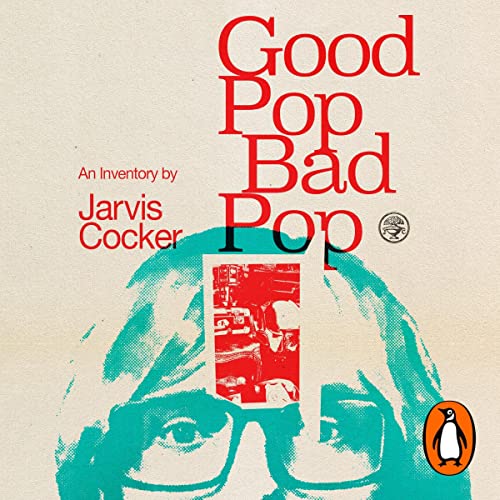
Skyfaring: A Journey With a Pilot by Mark Vanhoenacker
This was a present from my wife Jocelyn for Christmas 2021. I had not been previously aware of it, so was pleasantly surprised when it became one of my favourite books of the year.
Vanhoenacker is a commercial airline pilot who has flown short-haul and long-haul routes for British Airways from a base in London to cities all over the world. He writes engagingly and romantically about all aspects of flying – the machines, the processes and procedures, the navigation systems, but mostly how it feels to transport and be transported so rapidly across space and time.
The prose is ethereal and dreamlike, in a manner not dissimilar to the jet lag and “place lag” that it describes. Vanhoenacker captures well the magic of aviation and inspires a desire to travel once again, following years of Covid lockdowns.
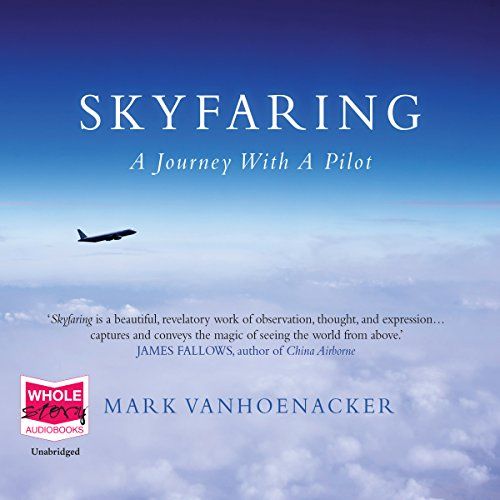
The Outrun by Amy Liptrot
This is a fascinating memoir by Amy Liptrot who, at the age of thirty, left behind the life she lived as an alcoholic in London to return to her childhood home of Orkney. Her sublime writings about the path to recovery amongst the peaceful nature of the islands are quite hypnotic, and spoke to me, particularly the sections about gradually building new and better habits over time.
Nourishing and inspiring, this book is the reason that I have spent less of my free time watching TV and drinking wine this year, preferring instead to spend my time on more productive activities (like reading!)
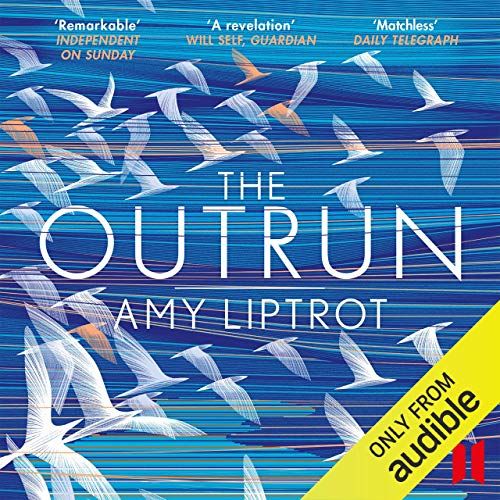
The Very Nice Box by Laura Blackett and Eve Gleichman
My favourite work of fiction this year was this sparkling debut novel that captured the zeitgeist in a manner that reminded me of Douglas Coupland novels in the early 1990s. Obsessive engineer Ada designs storage boxes for STÄDA, a furniture manufacturer that comes across as a cross between Ikea and a Silicon Valley big tech company.
This is a darkly humorous and suspenseful novel that is an easy read. Having bought and enjoyed it in the States around New Year prior to its UK release, I mailed my copy to my friend and erstwhile colleague Steph, as I knew she’d love it too. She soon messaged “I devoured it. I’m reeling. Thank you”.

The Best of the Rest
A Thousand Brains: A New Theory of Intelligence by Jeff Hawkins
I bought this book after it was recommended by Bill Gates in one of his periodic Gates Notes emails. It is brimming with fascinating theories on how the human brain works – I was particularly taken by the explanation of “frames of reference” as a model for the way in which we comprehend the world.
Bewilderment by Richard Powers
I don’t read many books which could be considered to fall within the category of science fiction. But Bewilderment doesn’t feel like traditional science fiction, rather it gently and sensitively covers broader themes of man’s impact on the earth, autism, our political systems, the loss of loved ones, and the workings of brain. This one will linger with me for a while.
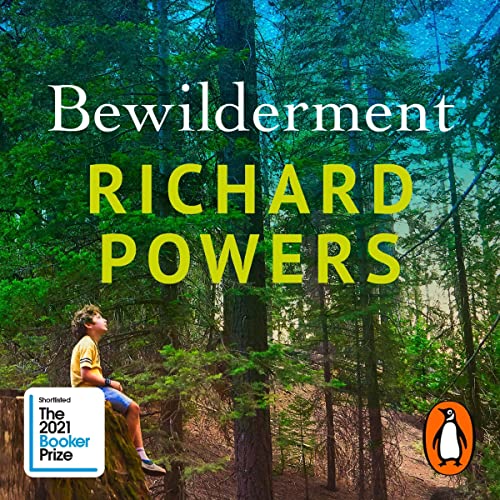
Learn How to Solve Cryptic Crosswords: A Course for Beginners by Henry Howarth
When not reading books, I also enjoy reading newspapers and magazines. I usually skip straight past the cryptic crosswords in these, finding them to be baffling and impenetrable. B
ut one evening this year I lingered for a little while over a crossword in New Statesman and was pleasantly surprised to realise that I could work out the answer to one of the easier anagram clues.
This epiphany caused a curious tingle in my brain which I wanted to experience again. So I sought assistance via this excellent textbook-like work, which takes the reader on a step-by-step course explaining the different types of clues to be found in cryptic crosswords and techniques for solving these.
Thanks to this book, I now find myself capable of tackling the relatively easy Everyman crossword in The Observer each week, and sometimes the cryptic crossword in New Statesman, dependent on the setter. The tingles in my brain keep coming along with those “a-ha!” moments when the penny drops on a cute parsing. I’m enjoying building my vocabulary and general knowledge, and hope to build up to tackling the tougher problems in the national dailies next year.
Exponential: How Accelerating Technology is Leaving Us Behind and What to Do About It by Azeem Azhar
This book considers the potential impact upon the world of technologies that are currently improving at an exponential rate. I found much of this far-sighted work to be reassuringly optimistic in nature, such as the potential for 3D printing to decentralise manufacturing bases, or the transition away from fossil fuels. Elsewhere however, Azhar highlights the inability of slowly-acting national governments to respond to a changing world with fast-moving social problems.
Software Architecture: The Hard Parts. Modern Trade-Off Analyses for Distributed Architectures by Neal Ford, Mark Richards, Pramod Sadalage and Zhamak Dehghani
This was my favourite technical book of the year. The weak joke about software architecture is that the answer to any question is “it depends”. As a result of this truism, most other books on the subject tend to give an overview of various nonfunctional considerations (scalability, deployability, testability, extensibility, etc) while stopping short of offering any firm guidance. After all, “it depends” on the specific system and business drivers.
“The Hard Parts” faces head-on the complexities involved in making such trade-off decisions in the world of distributed systems in general and microservices in particular. Aided by an extended case study that runs throughout the book, it offers techniques to identify appropriate levels of reuse, decomposition, data ownership, distributed workflows, transactional sagas, and more. I particularly appreciated one of the later chapters on managing analytical data, which compared traditional Data Warehouses and Data Lakes with a more contemporary Data Mesh approach.
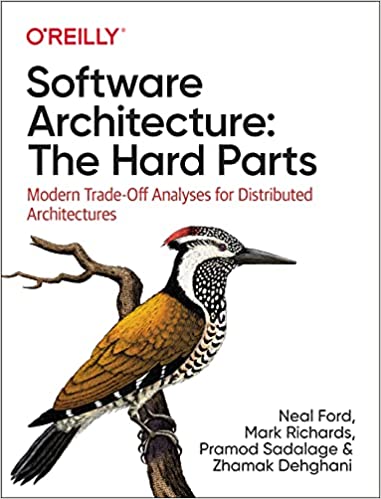
If It’s Smart, It’s Vulnerable by Mikko Hypponen
Mikko Hypponen is a global cybersecurity expert with over thirty years’ experience working as a researcher and investigator. This short breezy book provides a fascinating array of anecdotes and insights from his career in infosec, in addition to concrete advice for how we as individuals can better protect ourselves in our increasingly interconnected world.

No One Round Here Reads Tolstoy: Memoirs of a Working-Class Reader by Mark Hodkinson
It seems that since reading Lowborn and Poverty Safari, the Audible recommendation algorithm has concluded that I want to hear more tales of working class folk achieving against the odds. That’s how I discovered this charming and drily humorous autobiography by Lancastrian author, publicist and bibliophile Mark Hodkinson. In addition to the many anecdotes about reading and the publishing industry, this also features poignant yet often wildly funny chapters on music, schools, family relationships and terrible jobs.

Seven Games: A Human History by Oliver Roeder
The seven eponymous games covered in this book are checkers, chess, Go, backgammon, poker, Scrabble and bridge. For each, Roeder dives into the history, basic strategies, the personalities involved at the highest levels of the game, and what makes each game challenging for humans (and computers) to play. His first-hand reports of his experiences entering world poker and Scrabble competitions were particularly entertaining.
I enjoyed studying Game theory at university in the mid-1990s where part of the course covered the basics of developing chess-playing software in a rather deterministic, brute-force manner. It was interesting to contrast those techniques with some of the modern AI/ML approaches described in this book that have been used to allow computers to succeed at these games.

Trillions: How a Band of Wall Street Renegades Invented the Index Fund and Changed Finance Forever by Robin Wigglesworth
My favourite financial book of the year, this history of index funds is a surprisingly mesmerising confluence of economics, history, mathematics, psychology, computer science and more. In addition to focusing on the cost savings that can be had to individuals who choose to invest via index funds rather than active managers, it also touches on the implications for corporate governance of the large proportion of companies now owned by “passive” funds.
Hope and Glory: A People’s History of Modern Britain by Stuart Maconie
In this warm-hearted look at Britain, broadcaster and author Stuart Maconie selects one key event from each decade of the twentieth century, travelling to the location where they occurred and explaining how they have shaped the country in which we live.
Maconie is an opinionated author, and in these divided times I suspect that levels of enjoyment of this book will depend upon whether your politics fall on the same side of the fence as his. Mine largely do, so I found this to be an entertaining, witty, and insightful read. Some of the scenes and interviews described from Maconie’s travels also made me consider that perhaps Britain (and England in particular) is after all a more welcoming, progressive and tolerant society than I had recently believed… but then I realised that this book was published back in 2012, just ahead of the unifying London olympics, and well before the divisive Brexit referendum.
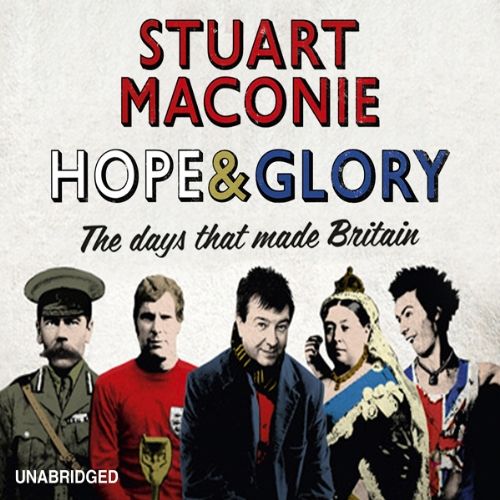
Out of Office: The Big Problem and Bigger Promise of Working From Home by Anne Helen Petersen and Charlie Warzel
I have been fortunate enough to be able to work from home for the last 33 months, since the onset of the Covid-19 pandemic made clients such as mine realise that this was a possibility.
This book explores the pros and cons of remote working, and in particular how to use the opportunity that this affords to change our lives and communities for the better. Some aspects of the discussion are rather US-centric in regard to the labour market and geography, but much of this commentary and analysis applies equally to our situation in the UK and Europe.
Reclaiming Conversation: The Power of Talk in a Digital Age by Sherry Turkle
It is almost a quarter century since I first read a book by sociologist and clinical psychologist Sherry Turkle. Life on the Screen: Identity in the Age of the Internet made a big impression on me as I was leaving university and stepping out into the world of work, helping me realise that the internet offered the ability to easily connect with people and ideas from far and wide.
By contrast, Reclaiming Conversation argues that we have now taken this search for broad but shallow connections too far, and have largely lost the capacity for the deeper one-to-one conversations that have the power to help us build meaningful lives and relationships. In a world of texts, tweets, and other micro-interactions, Turkle explores the benefits to education, business and family relationships that can be achieved by reclaiming the lost art of conversation.
Catch-22 by Joseph Heller and A Clockwork Orange by Antony Burgess
I have been making an attempt to supplement my predominantly contemporary reading diet with the occasional classic novel, and I especially enjoyed reading these two during 2022, in addition to The Catcher In The Rye and Of Mice and Men.
Catch-22 had been recommended to me by my friend Jonathan Telfer when we were at university together in 1995, then again last year by colleague Magnus John when the character of Major Major somehow came up in conversation during a code review. I eventually succumbed to listening to the audiobook version narrated by Canadian actor Trevor White which is excellent – the dialogue in this funny and profound novel really benefits from being spoken aloud.
I had bought a paperback of A Clockwork Orange in 1998 and not yet read it until this October. I think the prospect of tackling the Nadsat slang which is used in much of the narrative had dissuaded me from starting this book for so long, but in the event this proved little barrier to understanding and enjoying this short novel. The context in which the slang words were used aided comprehension, as did familiarity with the storyline from having seen Stanley Kubrick’s film adaptation.
Prisoners of Geography: Ten Maps That Tell You Everything You Need to Know About Global Politics by Tim Marshall
This illuminating book explains how each nation’s choices and geopolitics are shaped by coasts, rivers, mountains, deserts and plains. It concisely explains why international affairs are the way they are, and how the physical topography of the world has shaped the political world maps with which we are generally more familiar. With particular reference to recent events, it presciently explains the geographical context behind Putin’s war in Ukraine. There is a sequel, The Power of Geography, which I have bought but not yet read.

